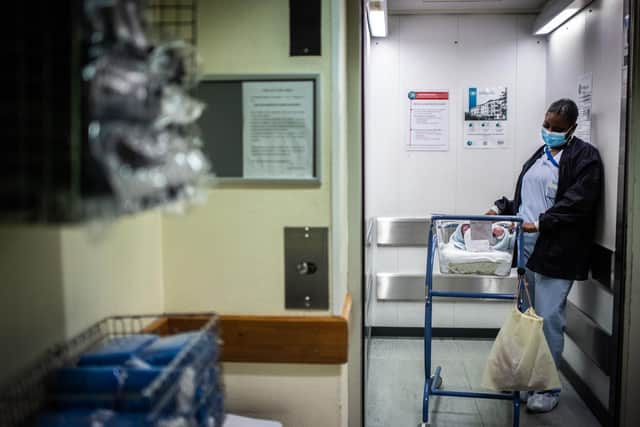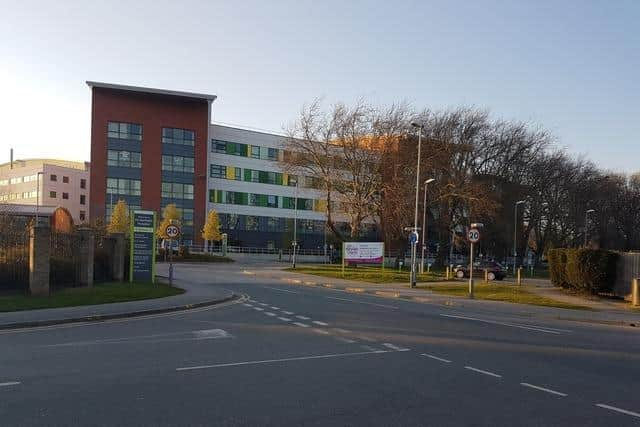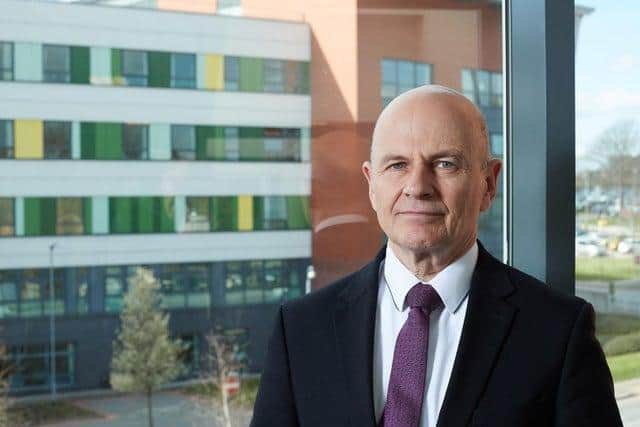'Inexcusable and disrespectful': Covid deniers causing more grief to tired NHS staff on the frontline, Mid Yorkshire Hospitals NHS Trust says
and live on Freeview channel 276
Martin Barkley, who runs the Mid Yorkshire Hospitals NHS Trust, said he believed the actions of those denying the existence of the virus online were "inexcusable".
The trust, which runs Pinderfields Hospital in Wakefield as well as sites in Pontefract and Dewsbury, is currently caring for 190 Covid patients, according to the latest figures available.
That's a rise of 50 from New Year's Day.


Advertisement
Hide AdAdvertisement
Hide AdIn an interview on Tuesday, Mr Barkley said there had also been a "significant" increase in the number of patients who are "seriously ill" with coronavirus over the last 36 hours.
And he criticised people who have refused to acknowledge the deadly harm of the virus and the human misery it's caused, saying it was hurting fatigued and "anxious" staff.
Mr Barkley said: "It’s just inexplicable that there are Covid deniers who believe Covid is fiction and that it's all just utter rubbish.
“The evidence is there for everyone to see, if they’d open their eyes to what’s going on and the impact it’s had on people’s lives.


Advertisement
Hide AdAdvertisement
Hide Ad"For people to deny its existence, let alone fail to follow the rules - our staff find it disrespectful and upsetting, considering they are putting their lives on the line every day."
Mr Barkley emphasised that nurses had spent much of their time during the pandemic informing families that their loved ones had died, as well as having to orchestrate phone calls and virtual contact between sick patients and their relatives.
He added: "To be repeatedly having to break bad news has taken a huge toll.
“So for them to read some of the stuff they’ve been reading, I can only imagine what that’s like."


Advertisement
Hide AdAdvertisement
Hide AdThe trust chief said frontline workers have had "no recovery time at all", from the peak point of the crisis at the trust in November, when 330 people were being treated at Pinderfields for Covid.
That was almost double the highest number of patients from the first wave of the virus in April.
Given the time lag between lockdowns being imposed and hospital admissions improving, Mr Barkley said he expected things to get worse "for the next week or so".
The trust confirmed on Tuesday that patients admitted to Pinderfields were facing an average wait of between four and five hours for a bed.
Advertisement
Hide AdAdvertisement
Hide Ad"People are tired, anxious and frightened about what the next few weeks is going to bring," Mr Barkley added.
"We’re all pulling together and doing our best to support each other through these times.
“I’ve got no reason to believe this lockdown won’t work, but during the first lockdown we didn’t have this very infectious variant of Covid.
"I’d expect the benefits of this lockdown to start showing in about seven days.
Advertisement
Hide AdAdvertisement
Hide Ad“If we are to avoid what’s happening in London, or to ensure that what happens here is not as bad as in London, then the only thing we can do is to follow the rules and if at all possible stay at home."
The trust has also confirmed that more than 1,000 health and social care staff from across the Wakefield district and North Kirklees have been vaccinated so far.
Mr Barkley said he expected hospital staff will probably still have to wear PPE for the rest of the year, but that within months the situation will have been vastly improved by the vaccine programme.
He added: "I'm hoping and I believe that we will be in a better place come the end of April.
Advertisement
Hide AdAdvertisement
Hide Ad"Even if the vaccine doesn't give people complete immunity, it does protect them from the worst excesses of the symptoms.
"I suspect this is something we'll all have to learn to live with over the coming years but we will all feel safer soon."
Local Democracy Reporting Service